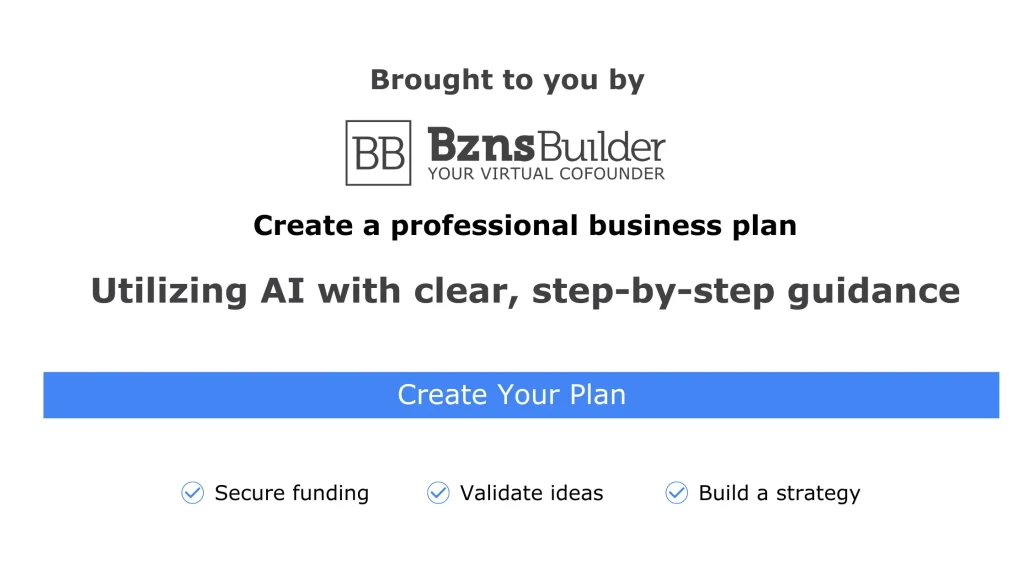Legal Requirements: Key Steps to Start Your Business

Starting a business in the EMEA region—encompassing diverse markets like Egypt, South Africa, and the UAE—demands a blend of innovation, strategic foresight, meticulous preparation, and compliance with legal requirements.
Equally critical, though often overlooked, are the legal requirements that ensure your business operates smoothly and complies with local regulations. From securing tax identification numbers to registering your business with the appropriate authorities, obtaining permits, and arranging insurance, these steps can seem daunting without a clear roadmap.
This guide highlights ten essential legal requirements tailored to entrepreneurs in the EMEA region, providing you with the tools and knowledge to navigate these obligations confidently and successfully.
What Are the Legal Requirements to Start a Business in the EMEA Region?
Starting a business in the EMEA region involves meeting specific legal requirements that vary by country. While these steps are presented in a general order, many can and should be completed simultaneously. Use this guide as a checklist to ensure your business is ready to launch.
If you’re starting a business in Egypt, the UAE, or other countries in the region, it’s essential to research location-specific regulations. For example, in Egypt, businesses must register with the General Authority for Investment and Free Zones (GAFI), which oversees business registrations and incentives. In the UAE, entrepreneurs often take advantage of Free Zones, which offer benefits such as tax exemptions and 100% foreign ownership.
For more country-specific regulations across the EMEA region, resources such as the World Bank Doing Business Guide can provide helpful insights.
1. Choose Your Business Structure
A business structure defines how your company is legally organized and impacts operations, taxes, paperwork, fundraising, and liabilities. Selecting the right structure is crucial for legal and financial compliance across the EMEA region.
Here’s an overview of the most common business structures:
- Sole Proprietorship: A single individual owns and operates the business. This is common for freelancers and small businesses in countries like South Africa and Egypt. Learn more about sole proprietorships in the Egyptian Business Registration Guide.
- Partnership: Two or more individuals jointly own the business. Partnerships are popular in Middle Eastern markets for family-run enterprises. For a deeper dive into partnership laws, visit Invest in Saudi.
- Corporation: A separate legal entity owned by shareholders. This structure is often used by larger companies operating in Africa or the GCC (Gulf Cooperation Council) countries. Explore corporation regulations on the UAE Government Portal.
- Limited Liability Company (LLC): Combines features of corporations and partnerships, offering liability protection to owners. LLCs are widely used in the UAE and Egypt for their flexibility and owner protection. Review LLC setup guidelines in the UAE here.
- Nonprofit: A business granted tax-exempt status for furthering a public benefit or social cause. Nonprofits are becoming more common in Africa, especially in sectors like education and healthcare. For African nonprofit registration requirements, visit the African Development Bank.
For more details, check out the World Bank’s Business Formation Guide, which offers insights into legal structures across various regions.
2. Register Your Business Name
Choosing a business name is a critical step in establishing your brand identity and ensuring it’s legally protected. Your name should reflect your brand’s vision and mission while being unique and not already registered.
Once you decide on a name, it’s essential to register it to certify and protect it legally. In Egypt, for example, you can register your business name with the General Authority for Investment and Free Zones (GAFI), while in South Africa, the Companies and Intellectual Property Commission (CIPC) handles name registration.
Key Registrations to Consider:
- Entity Name Registration: At a minimum, register your business name as an entity name to protect it at the national or regional level. In the UAE, you can register your name through the Dubai Department of Economic Development (DED).
- Trademark Registration: If you plan to operate across multiple countries in the EMEA region or internationally, consider securing a trademark to protect your name and logo. Visit the World Intellectual Property Organization (WIPO) to learn about trademarking your business name globally.
By completing these steps, you not only secure your business identity but also protect it from potential infringement. For more detailed information, explore this guide to registering your business name.
Optional: Register for a DBA (Doing Business As)
In the EMEA region, businesses may also register a fictitious name, commonly referred to as “Doing Business As” (DBA) in other parts of the world. This allows your business to operate under a different name than its formal legal or personal name, which can be particularly useful for branding or market-specific operations.
For example, in Egypt, this process is equivalent to registering a trade name with the General Authority for Investment and Free Zones (GAFI). In South Africa, businesses can file for a trade name through the Companies and Intellectual Property Commission (CIPC).
Why Register for a DBA?
- Brand Flexibility: Operate under a name that better reflects your product or market niche.
- Market Expansion: Use a localized business name for specific regions without changing your formal legal name.
- Legal Recognition: Ensure your fictitious name is recognized and protected under the law.
If you’re considering this option, explore this guide to registering for a DBA. It provides insights into the benefits and procedures for operating under an alternate name.
3. Apply for Tax Identification Numbers
In the EMEA region, obtaining tax identification numbers is a critical legal requirement for operating a business. These numbers are necessary to hire employees, pay taxes, secure licenses and permits, and open a business bank account. While the process varies by country, the importance of complying with local tax regulations remains consistent.
Tax Identification Numbers in the EMEA Region:
- Egypt: Businesses must register with the Egyptian Tax Authority to obtain a Tax Identification Number (TIN). This is required for tax filing and compliance. Learn more about the process on the Egyptian Tax Authority website.
- UAE: The UAE introduced a Tax Registration Number (TRN) under its VAT laws. All businesses meeting the VAT registration threshold must apply for a TRN through the Federal Tax Authority (FTA).
- South Africa: Businesses must register with the South African Revenue Service (SARS) for an Income Tax Number. Visit the SARS website for more details.
When Is a Tax ID (EIN or TIN) Required?
An EIN or TIN is required if you:
- Are registered as a corporation or partnership.
- Withhold taxes on wages paid to employees.
- Utilize a tax-deferred pension plan.
Changes That Require Updating Your Tax ID
If your business undergoes changes such as a shift in tax status, business name, address, management, or ownership, you may need to update or replace your tax identification number.
For step-by-step guidance, check out this guide to applying for a federal tax ID.
4. Create a Business Partnership Agreement
Whether you’re officially entering into a partnership or simply collaborating with others, drafting a business partnership agreement is a vital step. This agreement defines each partner’s rights, responsibilities, contributions, and ensures compliance with legal requirements, providing a clear framework for resolving potential disputes.
Skipping this step can lead to misunderstandings and legal complications down the road. As Riham Abu Elinin, founder of BznsBuilder, explains:
“I’ve seen many entrepreneurs overlook the importance of documenting their partnerships, only to face serious conflicts later. Investing time in this step is minimal compared to the potential challenges of not having a clear agreement in place.”
Key Elements of a Partnership Agreement
- Ownership Distribution: Clearly outline how ownership is divided among partners.
- Roles and Responsibilities: Define the specific contributions and decision-making authority of each partner.
- Profit and Loss Sharing: Specify how profits and losses will be allocated.
- Dispute Resolution: Include a process for resolving conflicts.
- Exit Strategy: Establish terms for a partner leaving the business or the dissolution of the partnership.
Tailoring Agreements for the EMEA Region
In the EMEA region, legal requirements for partnership agreements may vary by country:
- Egypt: Partnerships must be documented and registered with the General Authority for Investment and Free Zones (GAFI).
- South Africa: Legal partnerships are governed by the South African Partnerships Act. Learn more at the Department of Trade, Industry, and Competition (DTIC).
- UAE: Partnerships in the UAE often require notarized agreements, particularly for local sponsor arrangements in mainland companies. Visit the UAE Ministry of Economy for guidelines.
For detailed guidance on drafting a robust partnership agreement, refer to this step-by-step guide.
5. Obtain Business Licenses and Permits
Obtaining the necessary business licenses and permits is a crucial step in ensuring your operations comply with legal regulations in the EMEA region. Unfortunately, there’s no standardized list of permits, as requirements vary by country, city, business activity, and industry.
To legally operate your business, you must apply for the appropriate permits and licenses. These serve as proof that your business meets the regulations and requirements of the jurisdiction where you operate.
Licenses and Permits Across the EMEA Region
- Egypt: Businesses must obtain licenses through the General Authority for Investment and Free Zones (GAFI). Depending on your industry, additional permits may be required from specific ministries, such as the Ministry of Health for healthcare businesses.
- UAE: Licensing is managed through the Department of Economic Development (DED) or the relevant Free Zone authority. For example, businesses in Dubai must apply for licenses through the Dubai DED or relevant Free Zone authorities like DMCC.
- South Africa: Permits are issued based on local regulations. For example, you may need environmental permits for specific industries. Learn more on the South African Government Portal.
Local Permits
In addition to national permits, local city or municipal permits may also be required. For instance, in Cairo, specific districts may demand additional zoning permits, while in Johannesburg, health and safety permits might be needed for food-based businesses.
For a comprehensive guide on obtaining business licenses and permits specific to your region, visit this business license resource. This ensures your business complies with all necessary regulations and operates within the law.
6. Apply for Trademarks, Patents, and Copyrights
Protecting your intellectual property (IP) is vital to ensure your business retains ownership of its creations and innovations. Complying with legal requirements for IP protection is essential, as without proper safeguards, competitors may use your ideas, products, or services to their advantage. This is especially critical in the EMEA region, where diverse markets and cross-border trade increase the risk of IP theft.
Types of Intellectual Property Protections to Consider
- Patents: Patents grant exclusive rights to inventors, preventing others from making, selling, or using the invention for a specified period, typically 20 years. For example, Egypt adheres to international patent protections under the World Intellectual Property Organization (WIPO). Entrepreneurs can file patents with Egypt’s Academy of Scientific Research and Technology (ASRT).
- Trademarks: These protect brand identifiers such as logos, slogans, and names. Trademarks help customers distinguish your business from competitors and are critical in establishing brand trust. In the UAE, trademarks can be registered through the Ministry of Economy.
- Copyrights: Copyrights protect original works of authorship, including books, music, software, and designs. Businesses in South Africa can register copyrights through the Companies and Intellectual Property Commission (CIPC).
- Trade Secrets: Trade secrets include confidential business practices like formulas, processes, or customer lists that give your business a competitive edge. These don’t require formal registration but must remain confidential to retain protection.
- Industrial Designs: These protect the aesthetic or ornamental design of a product. Industrial design protections are essential for businesses in manufacturing and fashion industries and can be registered with WIPO.
- Geographical Indications (GIs): These protect products with unique qualities tied to their origin, such as “Argan Oil” from Morocco or “Turkish Delight.” The EU provides specific GI protections, while African countries like Kenya have frameworks under the African Regional Intellectual Property Organization (ARIPO).
Guidance on IP Protection
If you’re unsure about the type of protection you need, consult an IP attorney for professional advice tailored to your business and market. Securing these protections is an investment in safeguarding your brand and innovations, ensuring long-term competitiveness and value.
For more information, explore this guide to intellectual property.
7. Understand Your Tax Obligations
Complying with tax regulations is a fundamental legal requirement for businesses in the EMEA region. Understanding your local, national, and regional tax obligations ensures you file taxes accurately, make timely payments, and legally hire employees while adhering to all legal requirements. Tax requirements vary by country, so it’s essential to familiarize yourself with the specific laws in your location.
Tax Obligations in the EMEA Region
- Egypt: Businesses must register with the Egyptian Tax Authority to obtain a Tax Identification Number (TIN). Companies are subject to corporate income tax, VAT (if applicable), and employee withholding taxes.
- UAE: While the UAE is known for its favorable tax environment, businesses operating in mainland areas are required to pay VAT at 5% and corporate tax starting in 2023. Registration is managed through the Federal Tax Authority (FTA).
- South Africa: Businesses are required to register with the South African Revenue Service (SARS) for VAT, income tax, and employee withholding taxes. Corporate tax rates and VAT apply depending on turnover and business type.
Key Tax Considerations
- Business Taxes: Know the corporate income tax rate in your country and any additional taxes like VAT or service taxes.
- Employee Taxes: Register for payroll taxes and ensure timely payments of employee withholding taxes.
- Annual Filing: Stay aware of annual reporting deadlines to avoid penalties or non-compliance issues.
- Double Taxation Treaties: If operating in multiple countries, research agreements that prevent double taxation, such as those offered by the EU or specific bilateral treaties.
Professional Assistance
Tax laws can be complex, and mistakes can lead to fines or legal challenges. To ensure compliance, consult an accounting professional or tax advisor familiar with the regulations in your country. Many countries offer resources through local tax authorities to help small businesses, such as the World Bank Doing Business Guide.
For additional insights, explore this guide to small business taxes.
8. Select the Right Employee Classifications
Before hiring your first employee, it’s essential to understand the different classifications and their legal implications. Employee classifications affect wage laws, benefits, and tax responsibilities, making it crucial to classify your workforce correctly to comply with labor laws and legal requirements in the EMEA region.
Common Employee Classifications in the EMEA Region
- Full-Time Employees: Typically work 40 hours a week and are eligible for full employer benefits like health insurance, paid time off, and retirement plans. In Egypt, full-time employees must be registered with the Egyptian Social Insurance Authority to ensure compliance with labor laws.
- Part-Time Employees: Work fewer hours than full-time employees and may receive prorated benefits. Part-time employment regulations vary; for example, in South Africa, they are governed by the Basic Conditions of Employment Act (BCEA).
- Temporary Employees: Hired for specific projects or durations, they generally don’t qualify for long-term benefits. UAE labor laws allow temporary employment contracts under the Ministry of Human Resources and Emiratisation (MOHRE).
- Seasonal Employees: Employed during peak seasons like holidays or agricultural harvests. Seasonal workers in Africa may be covered under specific industry regulations, such as farming.
- Independent Contractors: Self-employed individuals who perform tasks or services and handle their taxes. Independent contractors in the Middle East often work under agreements compliant with local freelancing laws.
- Interns: Students or recent graduates working for short periods to gain experience. In many EMEA countries, unpaid internships must meet strict legal criteria to avoid exploitation. Learn more through the European Youth Portal.
- Exempt Employees: Salaried employees not eligible for overtime pay, often in managerial or professional roles. Laws defining exempt employees vary across regions, so consult local labor authorities.
- Non-Exempt Employees: Hourly workers eligible for minimum wage and overtime pay. Labor laws like the BCEA in South Africa protect these employees.
- Remote or Telecommuting Employees: Workers operating outside of a traditional office. With the rise of digital technology, remote work is increasingly common, and compliance with labor laws for remote employees is crucial.
- Freelancers: Similar to independent contractors, freelancers handle their taxes and typically work on a per-project basis. They are common in tech, design, and writing industries across the EMEA region.
Preparing to Hire
Correctly classifying employees ensures compliance with labor laws, prevents legal disputes, and helps you provide appropriate benefits. Inaccurate classification can result in penalties or liabilities. For example, misclassifying an employee as an independent contractor can lead to fines in jurisdictions with stringent labor laws, like the UAE or South Africa.
For more guidance, explore this hiring guide for businesses. It provides tips for selecting roles and managing a compliant workforce.
9. Get Business Insurance
While business insurance may not always be a legal requirement, it is an essential safeguard against unexpected damages, lawsuits, or liability claims. For businesses operating in the EMEA region, understanding the legal requirements for insurance is crucial, as the type of insurance required often depends on your industry, location, and operational risks.
Common Types of Business Insurance
- General Liability Insurance: Protects your business from claims such as personal injury, property damage, and bodily injury. This is especially relevant for businesses in industries like retail or hospitality, where public interactions are frequent.
- Professional Liability Insurance: Covers businesses against claims of errors, omissions, or negligence in professional services. For example, consultants and service providers in Egypt or the UAE often carry this insurance to mitigate client disputes.
- Workers’ Compensation Insurance: Provides medical care, income compensation, or death benefits to employees injured on the job. In South Africa, businesses must register for workers’ compensation through the Compensation Fund.
- Commercial Property Insurance: Protects buildings, equipment, and other assets used in business operations. This is vital for businesses with high-value assets in regions like the GCC, where environmental risks like sandstorms can cause damage.
Tailoring Insurance to Your Region
- Egypt: Business insurance is not always mandatory, but sectors like construction often require coverage for workers and assets. For example, insurance policies can be acquired through local providers like Misr Insurance.
- UAE: Certain types of insurance, such as health insurance for employees, are mandatory. Companies can explore additional coverage through the Insurance Authority.
- South Africa: Business owners can obtain a variety of policies, including liability and property insurance, through providers regulated by the Financial Sector Conduct Authority (FSCA).
Why It Matters
Even if insurance isn’t legally required, it provides critical protection for your business, employees, and assets. Skipping insurance can expose your business to significant financial risks, especially in regions with stringent liability laws.
For a more comprehensive understanding of what types of insurance your business may need, explore this business insurance guide.
10. Consult with Legal Professionals
Navigating the legal requirements for starting and running a business in the EMEA region can be complex. Consulting with experienced legal professionals ensures that you comply with all necessary laws, protect your business, and avoid costly mistakes.
Benefits of Consulting Legal Experts
- Tailored Advice: Legal professionals can provide advice specific to your country, industry, and business type. For example, an attorney familiar with Egyptian business laws can guide you on local registration requirements and compliance.
- Contract Drafting and Review: Whether it’s partnership agreements, employment contracts, or vendor agreements, lawyers ensure these documents are clear and legally binding.
- Regulatory Compliance: Legal counsel helps you understand local, national, and regional regulations, such as VAT laws in the UAE or labor laws in South Africa.
- Dispute Resolution: Professionals can help you navigate potential disputes, protecting your business from unnecessary litigation.
- Intellectual Property Protection: If you’re unsure about trademarks, patents, or copyrights, an IP lawyer can assist with registration and enforcement.
Finding the Right Legal Support in the EMEA Region
- Egypt: Seek counsel from firms specializing in corporate law, such as Shalakany Law Office, which provides support for business formation and regulatory compliance.
- UAE: Law firms like Al Tamimi & Company offer expertise in corporate law, intellectual property, and dispute resolution for startups and established businesses.
- South Africa: Firms like Cliffe Dekker Hofmeyr provide legal services tailored to small and medium-sized businesses.
Why Legal Guidance Matters
Even with thorough research, legal systems can be nuanced and complex. Investing in professional legal counsel provides peace of mind and protects your business as it grows and evolves.
For a deeper understanding of business laws, lawyers, and lawsuits, refer to this business law guide.
Get Your Finances in Order
Completing this legal requirements checklist ensures that your business is ready to operate. With permits, applications, insurance, and a tax identification number in place, you can now focus on organizing your finances.
Steps to Get Started:
- Map Out Startup Costs: Calculate all initial expenses, including licensing fees, equipment, insurance, and marketing. For example, in Egypt, registration fees with the General Authority for Investment and Free Zones (GAFI) should be included in your budget.
- Open a Business Banking Account: Choose a banking institution suited to your region and business needs. In the UAE, consider banks like Emirates NBD for small business accounts. This ensures your finances are separated from personal accounts, simplifying transactions and compliance.
- Set Up an Accounting Process: Implement accounting software or hire a professional accountant to manage income, expenses, and taxes. Platforms like Zoho Books are popular in the EMEA region for their ease of use and compliance features.
- Create a Financial Plan: Use tools like BznsBuilder’s AI-powered financial forecasting to plan your revenue, expenses, and cash flow for the first year. Visit BznsBuilder to explore financial modeling options.
By organizing your finances early, you’ll gain clarity on your business’s financial health and be better prepared to secure funding or scale operations.
For more tips, explore the next steps in starting a business.








